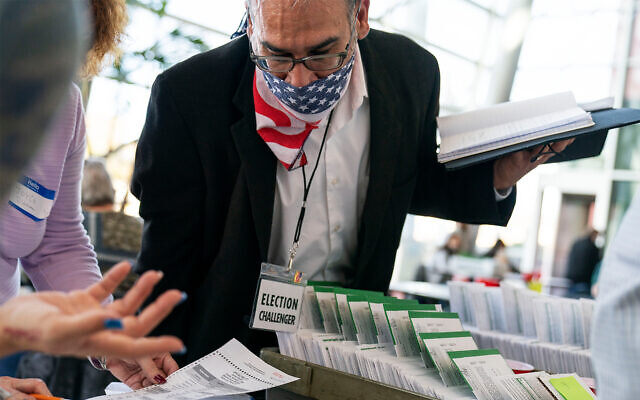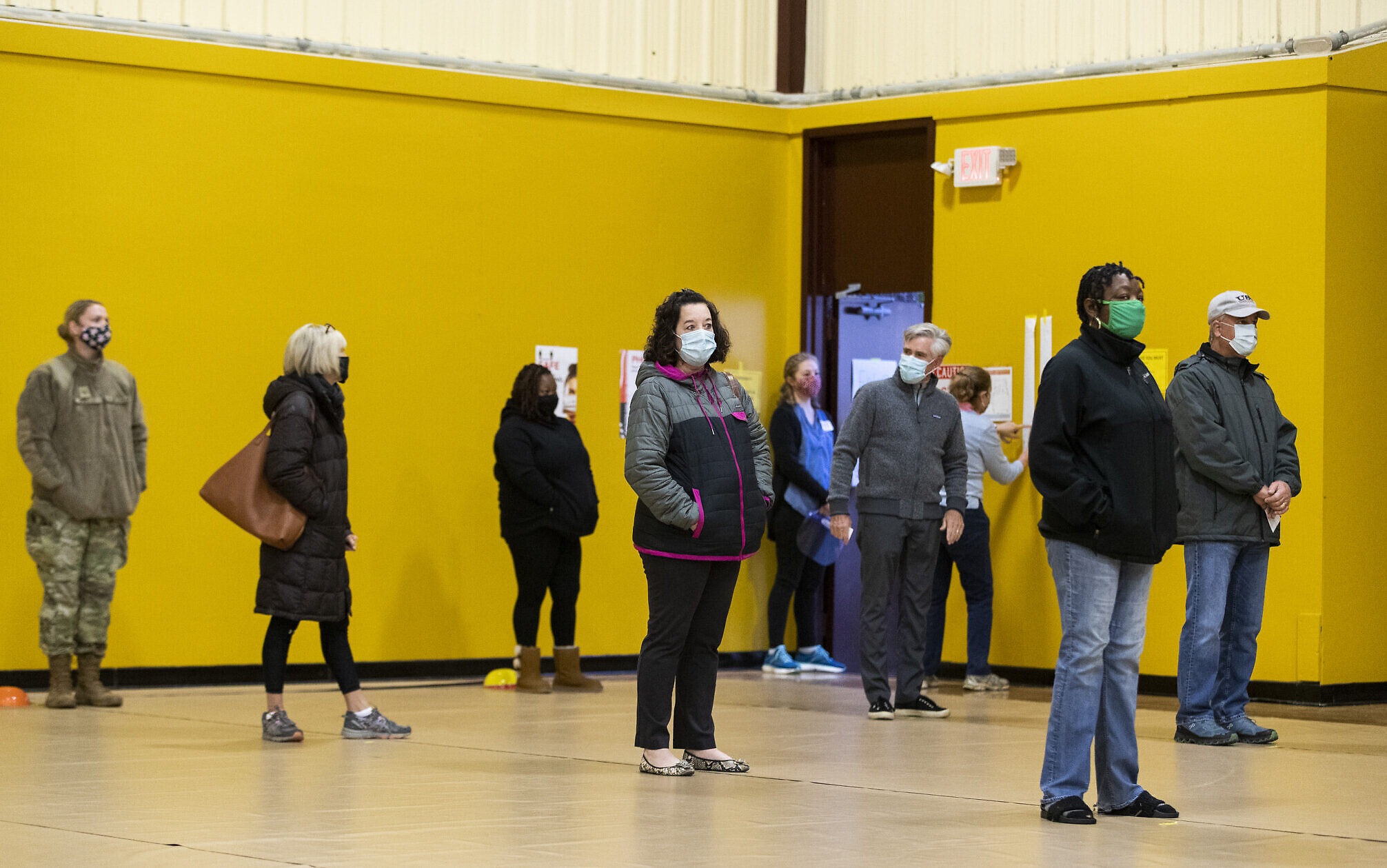Voting booths also closed in key battleground states of Florida and Georgia; states across US to end voting at intervals until the last ballot is cast in Alaska at 1 a.m. EST

WASHINGTON — US President Donald Trump has won Kentucky, and Democrat Joe Biden has carried Vermont, according to The Associated Press, which called those races Tuesday evening based on their exit polls.
They are the first two states called in the 2020 presidential election. Kentucky is reliably conservative, while Vermont is considered one of the most liberal states.
Trump wins eight electoral votes from Kentucky, while Biden takes three for winning Vermont.
The first polls for the US election closed in parts of Indiana and Kentucky at 6 p.m. EST on Tuesday, with several more areas following at 7 p.m., including in the battlegrounds of Florida and Georgia.
Following the first closures, polls in different states will shut every hour or 30 minutes, until the final in-person votes are cast in Alaska at 1 a.m. Friday.
Vermont, Virginia, South Carolina and parts of New Hampshire also close their voting booths at 7 p.m. Some parts of Florida will remain open until 8 p.m.
Other key states to keep an eye on are Arizona, closing at 9 p.m.; Michigan, 8 p.m.; Pennsylvania, 8 p.m.; and Wisconsin, 9 p.m.
Despite the polls closing, the winner may not be known on election night – or possibly even for days — because of the huge number of mail-in ballots that need to be counted.
A record-breaking number of early votes — more than 100 million — have already been cast in an election that has the bitterly divided country on edge and is being closely watched around the world.
According to the US Elections Project, 101.2 million early votes — over 70 percent of the total ballots in 2016 — have been cast in an election seen as a referendum on US President Donald Trump’s tumultuous first term.
More than 65 million are mail-in ballots and several key states — including Michigan, Pennsylvania and Wisconsin — do not begin counting those until Election Day itself, fueling fears a final result could take days.

Many early votes are believed to have been cast by Democrats, and Trump is hoping for massive Republican turnout on Tuesday.
Trump’s handling of COVID-19 has led to a loss of support among seniors, according to the polls, but his backing remains strong among rural voters and whites without a college degree.
Besides the White House, all 435 seats in the House of Representatives are at stake and Democrats are expected to possibly expand their majority in the chamber.
Roughly one-third of the Senate is up for grabs and Republicans risk losing their 53-47 majority.
Joe Biden, like Hillary Clinton in 2016, is expected to win the popular vote but it is the 538-member Electoral College that ultimately determines the winner of the White House race.
A candidate needs 270 electoral votes to win and it may come down to voters in the tossup states of Arizona, Florida, Georgia, Michigan, North Carolina, Ohio and Pennsylvania.

Trump is to host an election night party at the White House while Biden watches the returns at his home in Delaware with his vice presidential candidate Kamala Harris, the California senator who is the first Black woman to appear on a major party ticket.
An AP exit poll showed voters ranked the pandemic and the economy as top concerns in the race.
About 4 in 10 voters said the coronavirus pandemic was the top issue facing the nation. Roughly 3 in 10 called the economy and jobs most important. Trump, who has downplayed the virus, sought to focus his campaign on the pre-pandemic economy, while Biden has said the economy won’t improve unless the virus is controlled.
Voters are more likely to think the government should prioritize limiting the spread of the coronavirus — even if it damages the economy — than to say the economy should be the top priority.
Roughly half of voters said the coronavirus situation in the US is not at all under control. About 6 in 10 voters said the economy is in poor shape, while about 4 in 10 said economic conditions are excellent or good.
Roughly three-quarters said they’ve known all along who they were supporting in this election.
About a quarter of voters said they are very confident that the votes in the election will be counted accurately, while 4 in 10 were somewhat confident. Roughly 3 in 10 said they are not confident in an accurate vote count.
The preliminary results come from AP VoteCast, a nationwide survey of more than 127,000 voters and nonvoters conducted for The Associated Press by NORC at the University of Chicago.
As reported by The Times of Israel
